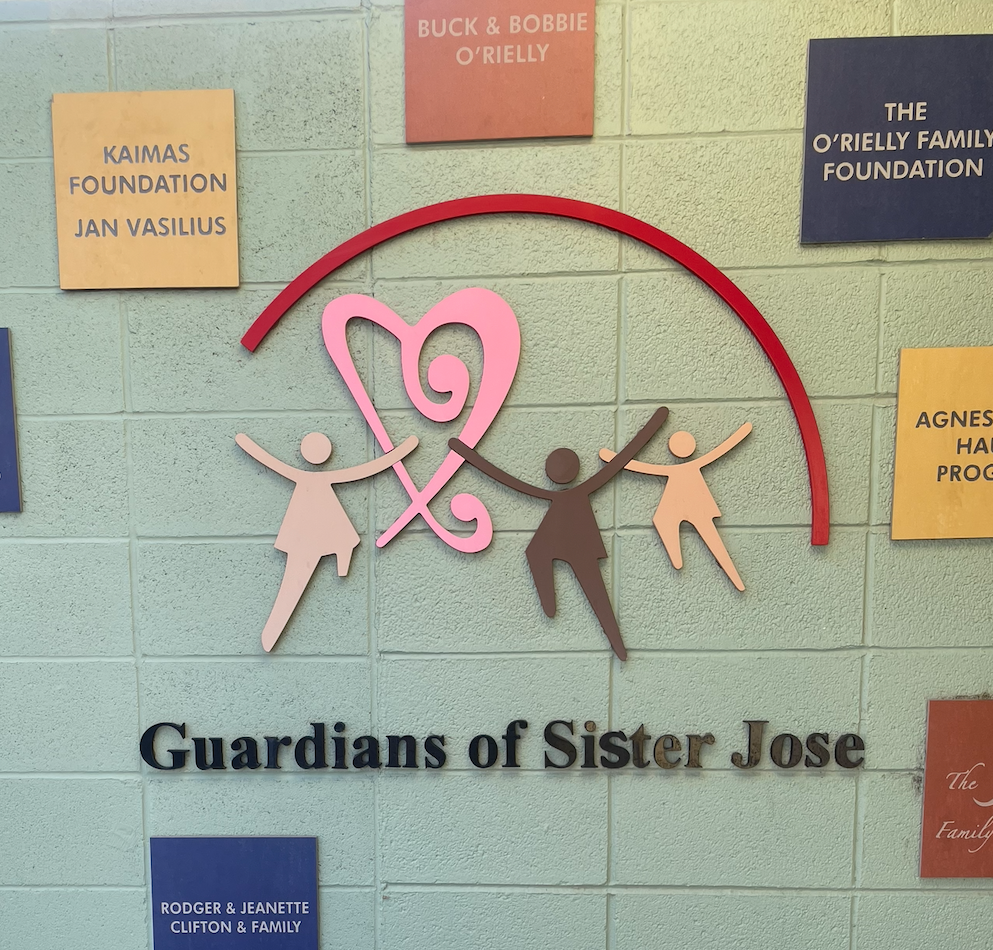Amid the Tucson housing crisis, the Sister José Women’s Center has begun a new project in the hopes of improving living conditions for the residents that they serve. This project, which focuses on mental health, hopes to help both the chronically and newly unhoused women that this center serves and turn a new corner in tackling the housing crisis plaguing Tucson.
“The goal of the impact project is to be able to support the most vulnerable women in the community with shelter for a longer time,” said Tia Nichols, program director at Sister José’s. “Our shelter starts [at] one week, so most community members only get seven days and they can come in and out. In for a week, out for a week. But with the impact project, the goal is to be able to have them here for longer while they figure out their next steps and how to stabilize.”
According to their 2023 data report, the Sister José women’s shelter serves women across all backgrounds, 63% of whom struggle with mental health disorders and 32% who struggle with substance abuse issues. Additionally, the shelter has seen a 17% increase in guests visits in the past year and a 19% increase in overnight stays, statistics which allude to the rising housing crisis in Tucson.
According to the center’s website, “there has been a 60% increase in the number of people who are unhoused in Pima County between 2018 and 2023.” Of the 2,209 total people who are unhoused on any given night in Pima County, 627 are women and 515 are adults with serious mental illnesses.
“Working with the unhoused is not a simple checkbox. That’s what’s difficult too, every case is different,” Emily Bridson, the center’s director of philanthropy, said. “What we’re finding is that we can get people into housing, for example, an apartment. But, we could put someone in there and they become lonely. They’re isolated, they’re by themselves, they don’t know how to handle small challenges.”
Because of this, Bridson noted that many women do not persist in housing and end up back at the shelter.
With this issue in mind, the center has put together a new impact project in an attempt to tackle the mental health aspect of houselessness, specifically relating to these women.
By bringing in more mental health care providers, more physicians, students that work in social work and more one-on-one time with the women, they hope to work through these mental health challenges.
“It’s not that easy because of the trauma or PTSD or many other things. It’s a lot and it takes a lot of time, love, trust and effort, which this place provides,” Bridson said.
This project, which creates a self-care plan for their guests, attempts to understand and sort through these challenges.
“There’s around 100 questions that I put on this sheet and it’s a lot of, ‘who’s there to support you? What things have you done where you felt successful? What types of jobs do you like to do?’ just so that they can have a little more insight into who they are,” Nichols said.“So many of our women have been on the street for so long that it’s hard for them to realize who they are and where they really want to go.”
These themes seen throughout the Sister José shelter and the women that they serve may also apply to the rest of those suffering from houselessness in Tucson. The proponents of this project believe pivoting to a focus on mental health and treatment instead of just viewing it as a material issue could be a step forward for the greater Tucson community.
For the Sister José center specifically, the loss of one of their longtime residents, Sarah, was what drove them to focus more on mental health.
“She was in an apartment, it took years to get her there and then she checked herself out and started living here again and then she left again and was living outside and she was hit by a car just down the road,” Bridson said.
While Sarah’s story is heart wrenching, it is not the first time this has happened to one of their guests and is another example of how important a factor mental health is in the entire equation of houselessness.
“Without mental healthcare, housing is one component of 10-20 things, all of the things you need to be successful and improve your living circumstances. Just because we get them in housing doesn’t necessarily mean they’re going to be successful and persist,” Bridson said.
As the housing crisis in Tucson persists, Sister José is focusing on the mental health aspect of this issue, providing resources and a safe space for women of all backgrounds.
Follow the Daily Wildcat on Instagram and Twitter/X









